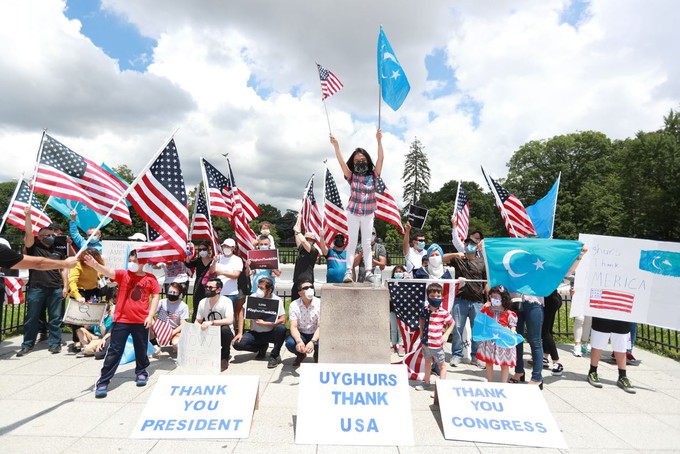- Clothes
- Bags
- Accessories
-
Inspiration
- Shoes
Breakthrough in supply chain responsibility: US Senate passes Uyghur Forced Labor Prevention Act

Photo by Kuzzat Altay on Unsplash
In a major step in holding brands accountable for their full supply chain, the US Senate approved a bill that bans imports from China’s Xinjiang region unless the importer can prove they were not made with forced labour.
Why the act is needed
In November 2020 new evidence was found that 1,8 - 3 million Uyghurs were kept in detention camps in China. As part of a so-called “re-education” programme, which included “job training”, detainees were sent to work in factories and at farms both in- and outside the Uyghur region of Xinjiang. Attendance was mandatory.
Forced labour was specifically linked to the cotton and tomato industry. With 20% of worldwide cotton production coming from this region, a lot of international brands were making their products with cotton which was made using the forced labour by Uyghurs.
Although the Trump administration already passed a law banning imports of cotton and tomatoes from the Xinjiang region, according to senator Marco Rubio goods made with forced labour in Xinjiang have still been imported at an alarming, horrific rate.
The Uyghur Forced Labor Prevention Act follows on the Biden administration declaring the mass detention and sterilization of minority ethnic groups in Xinjiang a genocide last March.
What the act entails
The goal of the Uyghur Forced Labor Prevention Act is to ensure that American consumers and businesses can buy goods without inadvertent complicity in China’s human right abuses. Instead of assuming products from the Xinjiang province are not tainted with forced labour, the U.S will now assume the opposite unless proven otherwise. The legislation will therefore prohibit all imports from the Xinjiang province, unless U.S. Customs and Border Protection certifies by clear and convincing evidence that goods were not produced with forced labour.”.
Thus, companies need to actively research their supply chains and make sure it’s not involved with forced labour in order to be able to keep selling their products on the U.S. market. However, it is not entirely clear what counts as convincing evidence and the earlier ban on cotton and tomatoes already proved hard to enforce as products would be sent through other locations to the American market.
Reactions to the act
Companies like Nike, Apple and Coca-Cola have been actively lobbying against earlier versions of the bill. Joanna Ewart-James (Executive Director of Freedom United) called the passage of this legislation “a gigantic step forward in the fight to end forced labour in the Uyghur Region” and “the most consequential piece of legislation Congress has passed in years to hold US corporations accountable for profiting from labour rights abuses abroad”.
Read more about the Coalition to End Uyghur Forced Labour here.
Share our story
Project Cece is a platform that collects ethical fashion from vetted brands and shops in one place. Browse ethical fashion for women and men and find items that fit your style, budget and values!